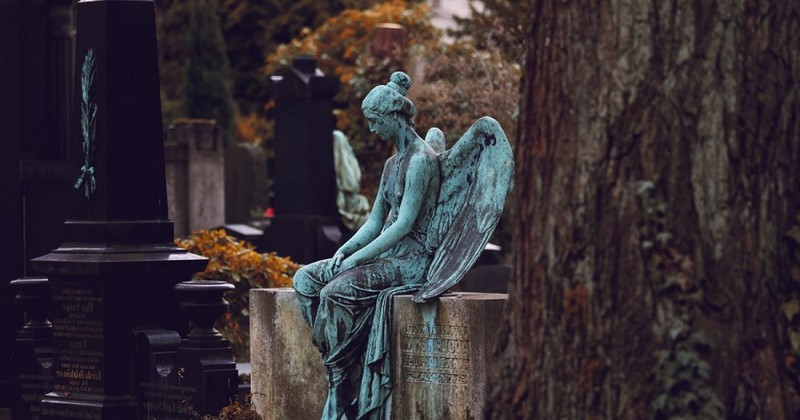Fear of death: symptom or cause?

How can we manage the fear of death? A reflection on this type of discomfort.
Fear of death is natural and responds to the survival instinct that characterizes us as living beings. It is a primary emotion provoked by a real or supposed danger.
On the other hand, fear has an adaptive function and is necessary for survival.. In this case, fear of COVID-19 activates behaviors of self-care and care for others.
The pandemic has presented us, without warning, a blunt reality about the possible proximity of death to our families, even to ourselves, and theThe pandemic has presented us, without warning, with a stark reality about the possible proximity of death to our families, even to ourselves, and today's society hardly knows how to deal with it, as it was not prepared for it.
In this society in which material well-being, consumption and leisure are the values that control the system, death did not fit in and was kept in an unnatural anonymity.
Fear of death and its impact on society.
Children do not attend the funerals of their own relatives, even beloved grandparents, or parents themselves. There is a kind of a fictitious bubble of protection created by adults that deprives children of the awareness of death, and even of saying goodbye to their loved ones.and even from saying goodbye to their loved ones, a necessary ritual to close the cycle of grief properly.
When I was a child, I saw the coffins pass through the streets of the village, on the shoulders of the relatives, followed by their entourage and revered by all the passers-by, who bowed in silence in a respectable gesture before death. The bells announced death in the same way that they tolled with joy at moments of celebration in life. The children went with the family to the wake, the relatives accompanied us all together in the Pain of the farewell. Many children (called altar boys) accompanied the priest at the last rites. And all this gave us a more realistic, responsible and less reckless outlook on life than that perceived by today's young people.
All this pedagogical obscurantism in our society today has triggered an emotional response from young people, has triggered an emotional response in people that often becomes somatized.In some cases, they develop severe anxiety, depression or the loss of adequate adaptive skills in stressful situations.
Many children, adolescents and adults (especially essential and health workers) come to my office since the beginning of the coronavirus pandemic with various symptomatologies, but all of them hide the fear, especially the fear of death.
Fear of the death of loved ones and of death itself has skyrocketed.. But are we talking only about death as a fact of life? No, there are many ramifications: fear of dying alone, fear of dying with suffering and pain, fear of not finding meaning in one's life, fear of not having lived long enough to fulfill one's dreams, fear of the end of everything... and many others.
Symptoms
If you feel anxiety, breathing difficulties, dizziness, trembling, sweating, tachycardia, chest pain and nausea, it is important to go inside yourself and connect with what is really happening to you, and especially to listen to and accept your real fearsIt will be easier to face them if you identify them.
There are other symptoms that, in addition to occurring in adults, are the ones that alert about the need for help in children and adolescents. We talked about nightmares, panic attacks, irritability, insomnia, sadness, fear of going outside or going to school and dependency behaviors.
What to do?
The best way to overcome the fear of getting sick and dying is to talk about it; suffering in silence can become entrenched and impair your quality of life.. It is good to learn about death and accept reality with a good dose of positive thinking.
In order to help children and adolescents, we have to talk to them as a family, talk to them about our loved ones who have passed away but who are part of our hearts. This will give them a sense of belonging to the family system and a sense of time, something they need to find a little bit of time.This will give them a sense of belonging to the family system and a sense of time, something they need to find some peace at this time and, above all, it is absolutely necessary to listen with interest to what they think about it, their fears and their fantasies about death. The worst fears are not those given to us by life, the worst fears are the imaginary ones.
To cope with the death of a loved one, it is essential to perform a farewell ritual, share with children these rituals and strengthen cohesion with family and friends.It is important to share these rituals with the children and to strengthen the cohesion with family and friends. We are all in the same boat. In this historic moment, many people keep silent about their pain, fear and helplessness, not knowing what to do with these emotions.
Do not hesitate to seek help if you need it. You are not alone. If you need professional accompaniment do not hesitate to contact me. I will be happy to help you.
(Updated at Apr 12 / 2024)